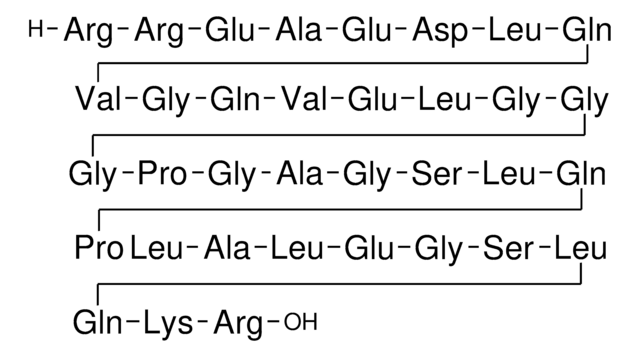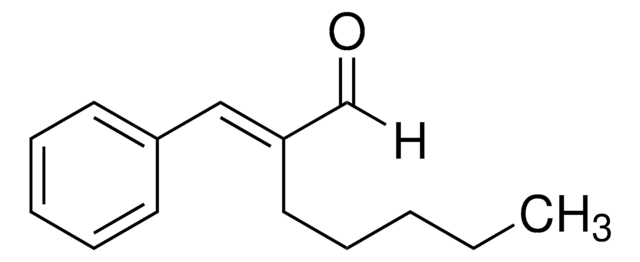Recommended Products
grade
for protein analysis
Quality Level
description
ED<sub>80</sub> = 10 ± 1 pM ED<sub>50</sub> = 23 ± 2 pM ED<sub>20</sub> = 52 ± 3 pM
analytes available: Proinsulin
2-100 pg/mL (standard curve range)
feature
accuracy 91–93%
species reactivity
human
technique(s)
radioimmunoassay: suitable
UniProt accession no.
detection method
radioactive
General description
SIZE: 110 amino acids; 11981 Da
SUBUNIT: Heterodimer of a B chain and an A chain linked by two disulfide bonds.
SUBCELLULAR LOCATION: Secreted.
DISEASE:SwissProt: P01308 # Defects in INS are the cause of familial hyperproinsulinemia [MIM:176730].
SIMILARITY: SwissProt: P01308 ## Belongs to the insulin family.
Application
Analysis Note
Disclaimer
signalword
Danger
Hazard Classifications
Acute Tox. 4 Dermal - Acute Tox. 4 Inhalation - Acute Tox. 4 Oral - Aquatic Chronic 3 - Eye Dam. 1 - STOT RE 2
target_organs
Respiratory Tract
Storage Class
10 - Combustible liquids
Certificates of Analysis (COA)
Search for Certificates of Analysis (COA) by entering the products Lot/Batch Number. Lot and Batch Numbers can be found on a product’s label following the words ‘Lot’ or ‘Batch’.
Already Own This Product?
Find documentation for the products that you have recently purchased in the Document Library.
Our team of scientists has experience in all areas of research including Life Science, Material Science, Chemical Synthesis, Chromatography, Analytical and many others.
Contact Technical Service











